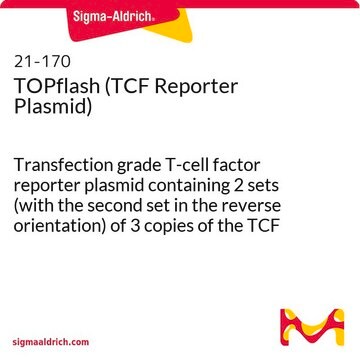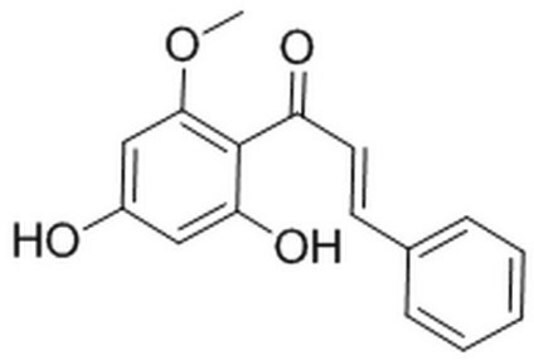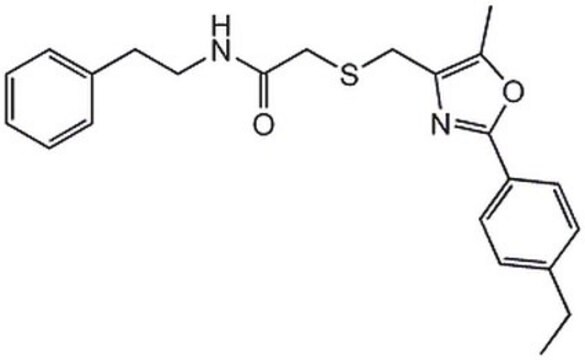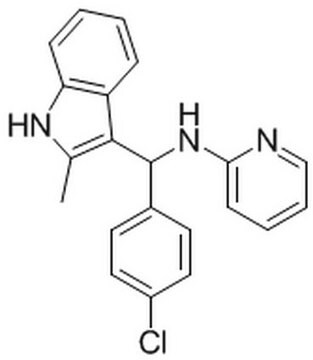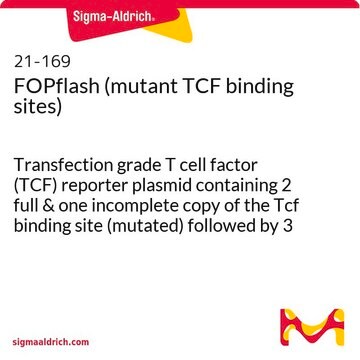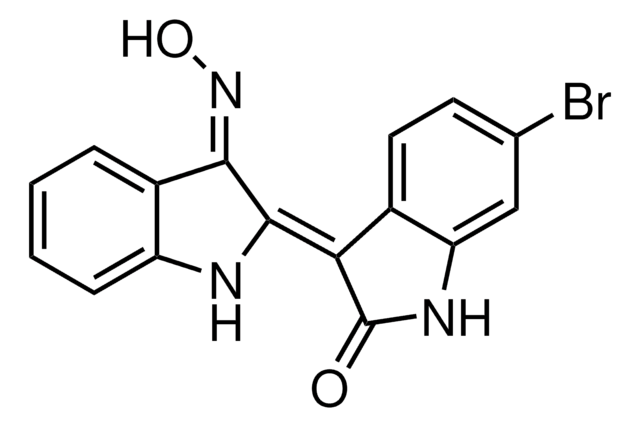219330
β-Catenin/Tcf Inhibitor, FH535
The β-Catenin/Tcf Inhibitor, FH535, also referenced under CAS 108409-83-2, controls the biological activity of β-Catenin/Tcf. This small molecule/inhibitor is primarily used for Cell Signaling applications.
Synonym(s):
β-Catenin/Tcf Inhibitor, FH535, N-(2-Methyl-4-nitro)-2,4-dichlorosulfonamide, Wnt Pathway Inhibitor IX
About This Item
Recommended Products
Quality Level
Assay
≥99% (HPLC)
form
solid
manufacturer/tradename
Calbiochem®
storage condition
OK to freeze
protect from light
color
yellow
solubility
DMSO: 100 mg/mL
shipped in
ambient
storage temp.
2-8°C
InChI
1S/C13H10Cl2N2O4S/c1-8-6-10(17(18)19)3-5-12(8)16-22(20,21)13-7-9(14)2-4-11(13)15/h2-7,16H,1H3
InChI key
AXNUEXXEQGQWPA-UHFFFAOYSA-N
General description
Packaging
Warning
Reconstitution
Other Notes
Legal Information
Storage Class Code
11 - Combustible Solids
WGK
WGK 3
Regulatory Listings
Regulatory Listings are mainly provided for chemical products. Only limited information can be provided here for non-chemical products. No entry means none of the components are listed. It is the user’s obligation to ensure the safe and legal use of the product.
JAN Code
219330-10MG:
219330-VMG:
219330-1.1ML:
Certificates of Analysis (COA)
Search for Certificates of Analysis (COA) by entering the products Lot/Batch Number. Lot and Batch Numbers can be found on a product’s label following the words ‘Lot’ or ‘Batch’.
Already Own This Product?
Find documentation for the products that you have recently purchased in the Document Library.
Our team of scientists has experience in all areas of research including Life Science, Material Science, Chemical Synthesis, Chromatography, Analytical and many others.
Contact Technical Service